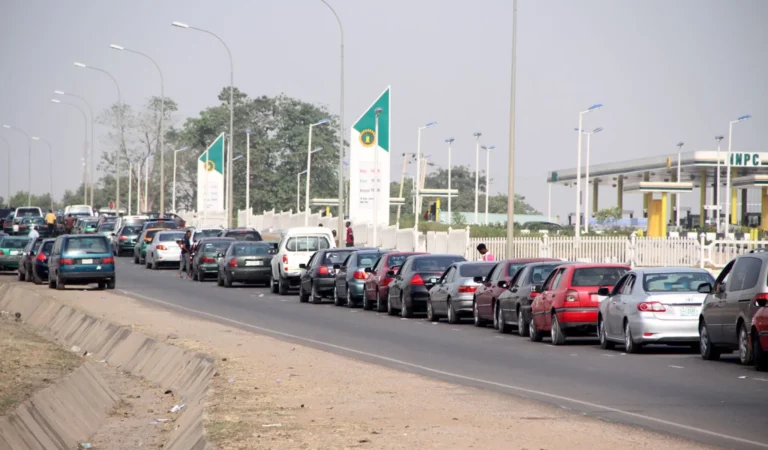The Dangote Petroleum Refinery has temporarily suspended the sale of petroleum products in naira, following the apparent breakdown of its naira-for-crude agreement with the Nigerian National Petroleum Company Limited (NNPCL).
The refinery’s decision, announced on Wednesday, has triggered an immediate increase in fuel prices, with loading costs at private depots in Lagos rising from below N850 to N900 per litre.
Industry experts warn that this move could put additional pressure on the foreign exchange market, as fuel marketers will now require US dollars to purchase petroleum products.
Insiders familiar with the negotiations attributed the collapse of the naira-for-crude deal to NNPCL’s extensive forward sales of crude oil. The national oil company had reportedly committed large volumes of future crude production to secure loans from international financial institutions, making it difficult to supply local refiners.
The NNPCL has not officially confirmed the halt of the naira-for-crude arrangement but reiterated its commitment to supplying crude oil for local refining under mutually agreed terms.
In a statement, the Dangote Group clarified that the suspension of naira transactions was necessary to prevent a mismatch between its sales revenue and crude purchase obligations, which are denominated in US dollars.
“To date, our sales of petroleum products in naira have exceeded the value of naira-denominated crude we have received. As a result, we must temporarily adjust our sales currency to align with our crude procurement currency,” the statement read.
The company dismissed rumors that the suspension was due to fraudulent activities in its ticketing system, calling such reports “malicious falsehoods.”
The immediate effect of the refinery’s decision has been a surge in fuel prices at private depots. Many depots, including Chipet, Rainoil, Wosbab, Pinnacle, and MRS, raised their loading costs by at least N9 per litre. Some industry analysts fear that if a resolution is not reached soon, fuel prices could exceed N1,000 per litre.
The Independent Petroleum Marketers Association of Nigeria (IPMAN) warned that the policy shift could reverse recent naira gains, as increased dollar demand would weaken the local currency.
IPMAN’s National Vice President, Hammed Fashola, urged the federal government to reconsider the naira-for-crude deal, emphasizing its role in stabilizing fuel prices.
“The masses are happy with the recent drop in petrol prices. But since the Dangote announcement, private depot owners have already started reviewing prices upward,” Fashola said.
During a meeting on Wednesday, the Petroleum Products Retail Outlet Owners Association of Nigeria (PETROAN) and other industry players strongly opposed the suspension of the naira-for-crude deal, warning of dire economic consequences.
“The naira-for-crude deal was a major factor in Dangote Refinery’s ability to lower petrol prices, forcing NNPCL to do the same despite its reduced margins,” PETROAN President Billy Gillis-Harry said.
Meanwhile, the Minister of Finance, Wale Edun, reportedly met with Aliko Dangote to discuss the challenges surrounding the deal.
Refinery operators and industry experts fear that suspending the naira-for-crude deal could pave the way for a return to full importation of refined products, which could weaken the naira and drive up fuel costs.
The Crude Oil Refinery-Owners Association of Nigeria (CORAN) criticized the government’s handling of negotiations and warned that abandoning local refining efforts would be a setback for energy security.
Industry stakeholders have urged President Bola Tinubu to intervene and ensure the continued supply of crude oil to local refiners.
“If Dangote and NNPCL don’t reach an agreement within the next 48 hours, fuel pump prices might hit N1,000 per litre,” warned petroleum analyst Olatide Jeremiah.




